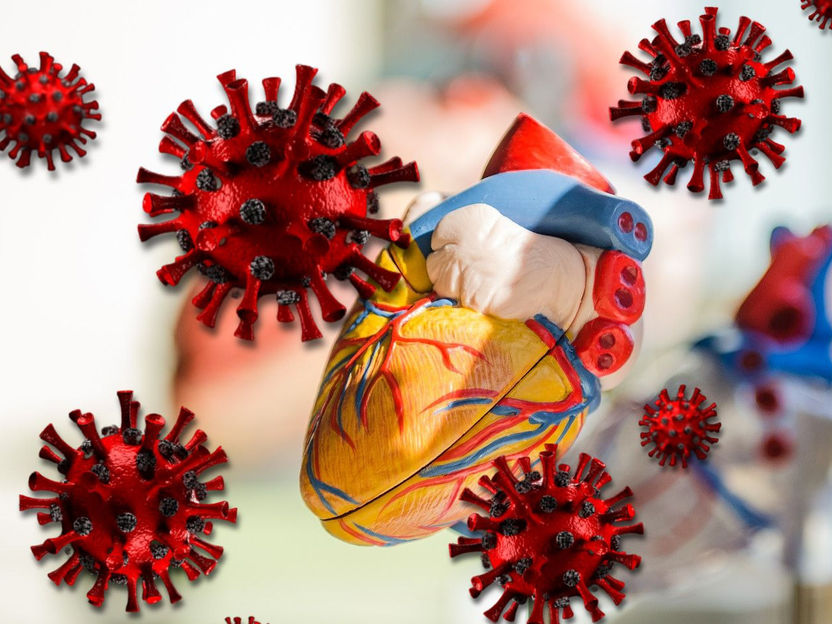SARS-CoV-2 attacks the heart
Research team detects biomarkers for cardiovascular stress in the blood of COVID-19 patients
Infections with the SARS-CoV-2 coronavirus are not only a burden on the lungs. The virus also massively affects the cardiovascular system. A research group of the Institute for Molecular and Translational Therapy Strategies of the Hannover Medical School (MHH) has now detected certain biomarkers in severely ill Covid-19 patients that are typically found in inflammatory processes and in patients with heart disease and offer possible new therapeutic approaches. The study, led by Institute Director Professor Dr. Dr. Thomas Thum and Dr. Christian Bär, was funded by the German Heart Foundation and published in the European Journal of Heart Failure. First authors are Ankita Garg, PhD, Dr Benjamin Seeliger and Dr Anselm Derda.

Symbolic image
pixabay.com
MicroRNAs identified as markers of cardiovascular damage
"We hypothesised that so-called non-coding microRNAs, which do not carry blueprints for genetic information, play an essential regulatory role in the exuberant immune response and subsequent remodelling of connective tissue in the lungs and heart. We already knew that these microRNAs are also detectable in the blood," explains Professor Thum. In cooperation with the MHH department of cardiology and angiology as well as the department of pneumology, the research team examined blood samples from 38 COVID-19 patients who were receiving intensive medical treatment and ventilation. "Therefore we focused on various sensitive microRNA markers for cardiovascular damage and analysed how high their concentration was in the blood serum," the institute director says.
For comparison, the study also examined the blood of flu patients with Acute Respiratory Distress Syndrome (ARDS), who also had to receive intensive medical treatment and ventilation, as well as blood samples from a healthy control group. The result: Compared to the healthy group, the concentration of microRNA markers in the blood serum of the severely ill COVID-19 patients was significantly increased. However, it also differed significantly from the values of the severely ill, also mechanically ventilated influenza ARDS patients.
The evidence that the heart is also affected by SARS-CoV-2 infections may have implications for the treatment of the patients. "According to our estimation, the heart function of COVID-19 patients would have to be observed in the long term course," says cardiologist Thum. In addition, the research team now wants to investigate whether the biomarkers can also be used to estimate prognosis for the course of the disease and recovery. The microRNAs could also provide approaches for new therapies.
Original publication
Other news from the department science

Get the life science industry in your inbox
By submitting this form you agree that LUMITOS AG will send you the newsletter(s) selected above by email. Your data will not be passed on to third parties. Your data will be stored and processed in accordance with our data protection regulations. LUMITOS may contact you by email for the purpose of advertising or market and opinion surveys. You can revoke your consent at any time without giving reasons to LUMITOS AG, Ernst-Augustin-Str. 2, 12489 Berlin, Germany or by e-mail at revoke@lumitos.com with effect for the future. In addition, each email contains a link to unsubscribe from the corresponding newsletter.


















































